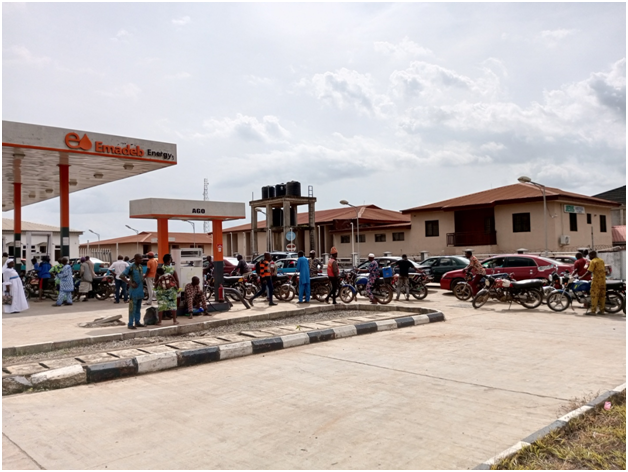Tackling high food prices, malnutrition
By Adedotun Ajayi
|
Food is a basic human need and fighting hunger is one of the greatest challenges of this century.
Many people today lack access to nutritious food for normal growth and development.
Just last month, a government source research data sponsored by United Nations Children Fund(UNICEF), USAID, EU, AU, ECOWAS and other partners revealed that no fewer than 21 states and the Federal Capital Territories(FCT) of Nigeria will experience malnutrition and food insecurity in 2022 and 2023.
The states affected by food insecurity include states of Abia, Adamawa, Bauchi, Benue, Borno, Cross-River, Edo, Enugu, Gombe, Jigawa, Kaduna, Kano, Katsina, Kebbi, Lagos, Niger, Plateau, Taraba, Sokoto, Yobe, Zamfara and the FCT.
According to UNICEF, Nigeria has the second highest burden of stunted children in the world, with a national prevalence rate of 32 percent of children under five. An estimated two million children in Nigeria suffer severe acute malnutrition, but only two out of every 10 children affected is reached with treatment. Seven percent of women of child bearing age also suffer acute malnutrition.
High rate of malnutrition pose significant public health and development challenges for the country. Stunting, in addition to an increased risk of death, is also linked to poor cognitive development, a lowered performance in education and low productivity in adulthood – all contributing to economic losses estimated to account for as much as 11 percent of Gross Domestic Product (GDP).
Agriculture has remained an important aspect of any economy. Viable agricultural programmes and activities in any polity are capable of sustaining the food supply and reserves needed for the welfare of the citizens. But in Nigeria, agricultural activity is low as able bodied young people do not have interest. Climate change and clashes between herdsmen and farmers and the activities of Boko Haram sect have added to food insecurity challenges in the polity as population displacement, death, and non-cultivation of farmlands and the burning down of farms produce have reduced the quality and quantity of food demand.
If a nation isn’t doing well in technology and other innovations, at least it should be able to feed her population, only then can it occupy a place of pride in the committee of nations. Nigeria is a country richly blessed with abundant natural and human resources that if properly harnessed can feed its people and export the surpluses to other countries, yet it is experiencing persistent food crisis both in terms of quantity and quality. Cases of malnutrition and under nutrition are growing by the day. The food intake requirements of majority of Nigerians have fallen far below the international standard.
Bunmi Adewa, an Economist said food insecurity and malnutrition are matters of grave concern largely because, as they say, a hungry man is an angry man. He said Nigeria was self sufficient in food production and was indeed a net exporter of food to other regions of the continent in the 1950s and 1960s.
“Agriculture contributed 42 percent of the Gross Domestic Product (GDP), which provided employment and a means of livelihood for more than 80 per cent of the productively engaged population, it received less than 10 per cent of the annual budgetary allocations. Under funding in this regard is central to the crisis of food production, and food shortage in Nigeria however explains the persistence of poverty,” he said.
Dr. Bolu Ikiede, a nutritionist said early this year, he and some other Doctors carried out a nutritional survey in the state that revealed alarmingly high level of malnutrition.
“Children under five have the highest burden of diseases due to malnutrition, or the inadequate, imbalance or excessive consumption of energy,” he said
He said as a nation, we must recognize the main cause and also the magnitude of the aftermath if we want to tackle malnutrition effectively. If the cause is related to a medical problem, it must be cured. When the cause is dealt with, you must plan a diet filled with nutrients so that you can heal the effects of malnutrition.
“The only way to eradicate malnutrition, from either sides of the coin, is to ensure that you always consume a balanced diet. For this to happen, one must include the major elements in the food such as carbohydrates, proteins, vegetables, healthy fats, fruits, milk or other dairy products, before these things can be achieved, the issue of food insecurity should be tackled,” he said
Adedeji Ayanleye, Public Health Educator, said the country’s food insecurity and resulting malnutrition can also be attributed to poor funding for sustainable policies, limited mechanized farming, poor rural development, and prohibitive practices that disenfranchise farmers at all angles, be it man or woman. He said about 9 out of 10 Nigerians cannot afford a healthy diet. Also, Nigeria has the second highest burden of stunted children across the globe, and millions of children suffer from acute malnutrition.
The agricultural sector is chronically underfunded, if this problem can be solved, it would go a long way, although the presence of militant groups like Boko Haram, in addition to violent clashes between herders and farmers, has further compounded the problem of food insecurity, if these problems are solved, I am sure Nigeria will go back to its glorious days” he said.
Olubunmi Adebiyi, a civil servant said the youths in the south are extremely lazy to farm, although we can’t blame them completely, they are literally scared because of insurgency here and there but before Boko Haram, the south west have always preferred office job and any quick money making schemes.
“They depend on the north for food and the insecurity caused by herdsmen and kidnappers has made farming in the north extremely difficult too.
If measures are not taken, we might have a full blown food insecurity and scarcity as even northerners are now scared to move their limited farm produce down to the south for sales” she said.










